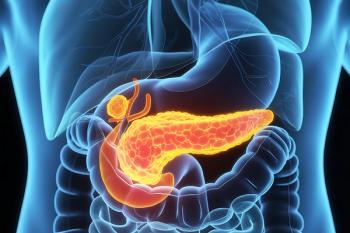
FDA Updates Safety Label of Byetta
Byetta is used to control blood sugar in patients with diabetes. A new warning includes the risk of gallstones and gallbladder inflammation.
The FDA has
The change was made based on results from the EXSCEL trial of Bydureon (exenatide extended-release), another AstraZeneca therapy used for glycemic control, an FDA spokesperson said. EXSCEL was a multinational study that evaluated cardiovascular outcomes during treatment in 14,752 patients with type 2 diabetes and any level of cardiovascular risk when added to the current usual care (NCT01144338).
That study found that 1.9% of Bydureon-treated patients and 1.4% of placebo-treated patients reported an acute event of gallbladder disease, such as cholelithiasis (gallstones) or cholecystitis (inflammation of the gallbladder).
The labeling of Byetta has been updated to include this data as well. The new subsection reads:
“Acute events of gallbladder disease such as cholelithiasis or cholecystitis have been reported in GLP-1 receptor agonist trials and postmarketing. In a clinical study with exenatide, 1.9% of exenatide-treated patients and 1.4% of placebo-treated patients reported an acute event of gallbladder disease, such as cholelithiasis or cholecystitis. If cholelithiasis is suspected, gallbladder studies and appropriate clinical follow-up are indicated.”
Newsletter
Get the latest industry news, event updates, and more from Managed healthcare Executive.























